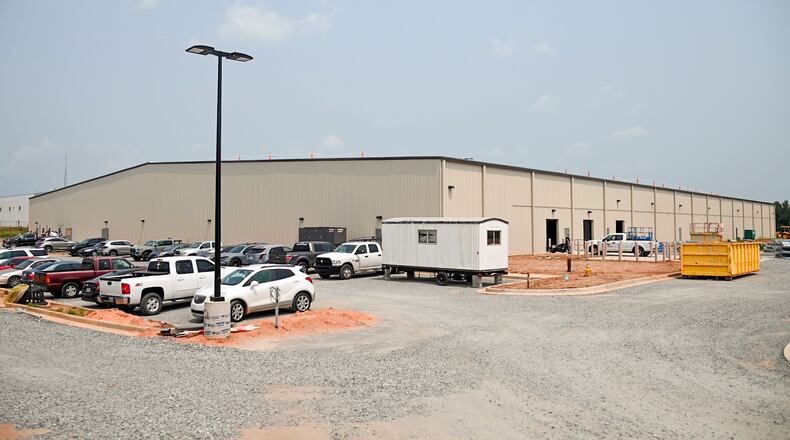Under construction in Middle Georgia, a giant warehouse is almost ready to begin growing medical marijuana for over 50,000 registered patients and caregivers.
There’s one big problem: The company, Fine Fettle, is still waiting to receive a license to produce the medication as lawsuits wind through the courts. Until then, it can’t start doing business.
Georgia was supposed to have six medical marijuana companies, but just two have been approved so far, creating a duopoly that has limited options for patients authorized by their physicians to take the drug for illnesses including seizures, Parkinson’s disease and terminal cancers.
Fine Fettle, which received the highest score from the state among 48 applicants for a license to grow 50,000 square feet of marijuana, is moving ahead with its Macon facility in hopes that lawsuits from losing companies are soon thrown out of court.
“The level of risk is worth the importance of getting this medication to the patients,” said Ben Zachs, chief operating officer for Connecticut-based Fine Fettle. “The goal here is about getting the patients what they need. We’re wishing this was happening sooner.”
While Fine Fettle waits on the courts, Georgia’s two large licensees have already opened dispensaries in Macon, Marietta, Newnan and Pooler, leaving broad swaths of the state without retail locations available to patients.
Legal challenges against those companies, Trulieve and Botanical Sciences, were defeated, and the Georgia Access to Medical Cannabis Commission in September issued production licenses for them to grow up to 100,000 square feet of marijuana.
Georgia law has allowed patients and caregivers to consume low-THC oil since 2015, but until April when dispensary licenses were approved, they had no legal way to purchase it.
Fine Fettle has invested $35 million in its Macon facility in anticipation that demand will continue to rise far beyond the 29,000 patients and 21,000 caregivers currently registered with the Department of Public Health.
Cannabis oil can have no more than 5% THC, the compound that gives marijuana users a high.
“We’ve been marching ahead to make sure we’re ready as soon as we do get the official award,” said Jeremy Fort, CEO of Fine Fettle Georgia. “Having more companies up and running will give the patients of Georgia more access to different formulations to treat their illnesses.”
It’s been two years since the Georgia Access to Medical Cannabis Commission announced its intent to award licenses to Fine Fettle and three other companies that are also awaiting final approval — TheraTrue Georgia, Natures GA and Treevana Remedy.
Soon afterward, losing applicants for marijuana production licenses challenged the tentative awards in court, alleging that the selection process was unfair, inconsistent and secretive. While many of those lawsuits have been dismissed, some are still pending.
Credit: JASON VORHEES / Macon Telegraph
Credit: JASON VORHEES / Macon Telegraph
“We hope to see the judiciary move in an expeditious manner so we can get these folks in business,” said Andrew Turnage, the commission’s executive director. “We’re not interested in any delay here. We want them to be able to move forward.”
For now, Fine Fettle’s 118,000-square-foot facility is a relatively empty space of shelves that will one day be filled with indoor cultivation rooms, offices, a laboratory, packaging areas and a vault.
If all goes well, Fine Fettle will be able to grow marijuana and ship it to several dispensaries by the time the facility is finished in September or October. If not, the company could lose millions of dollars and patients will be left waiting.
“I wish I had a Magic 8 Ball, but you’ve got to let the legal process play out,” Zachs said. “Making this product more available for the best patient outcomes is imperative.”
About the Author
Keep Reading
The Latest
Featured




